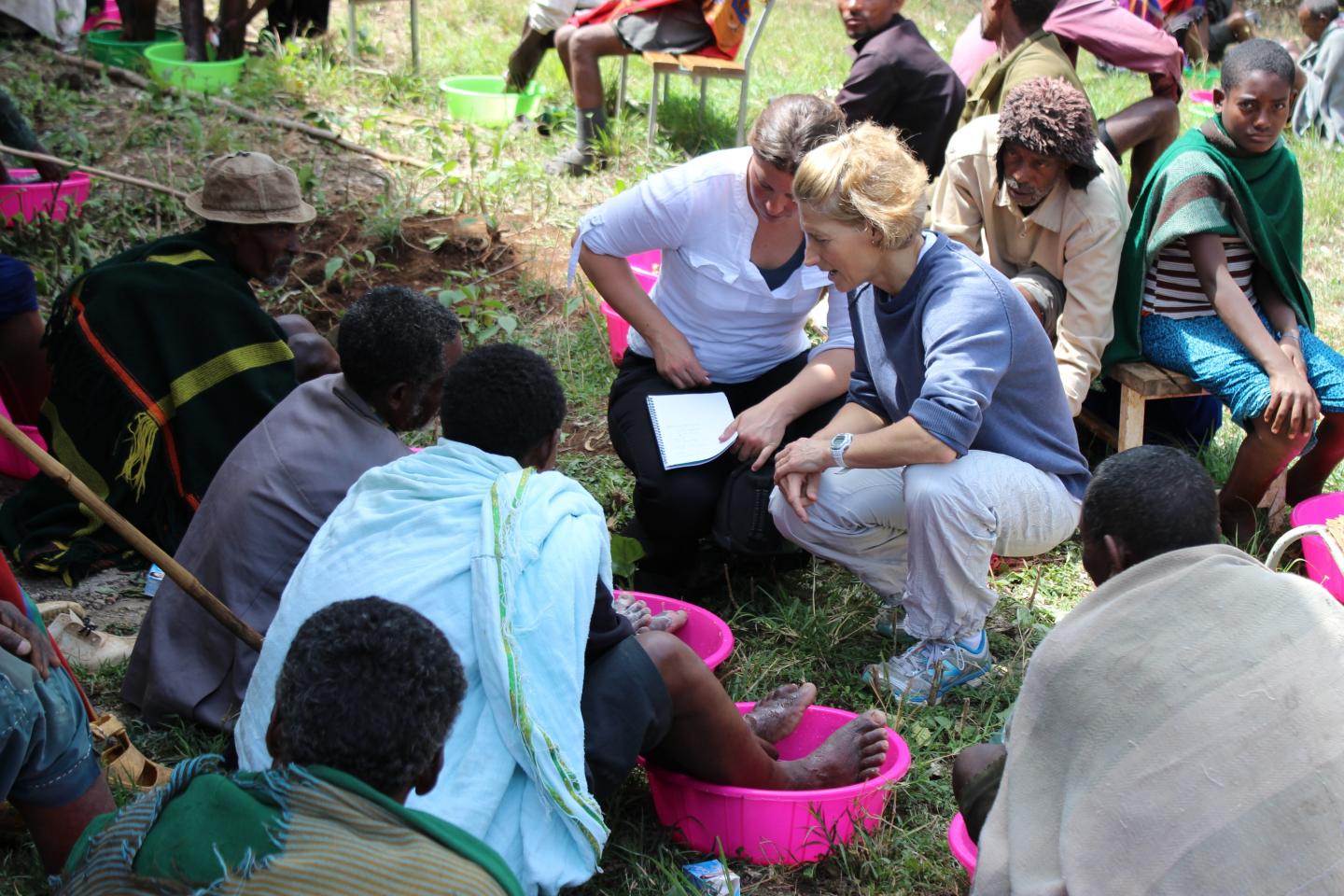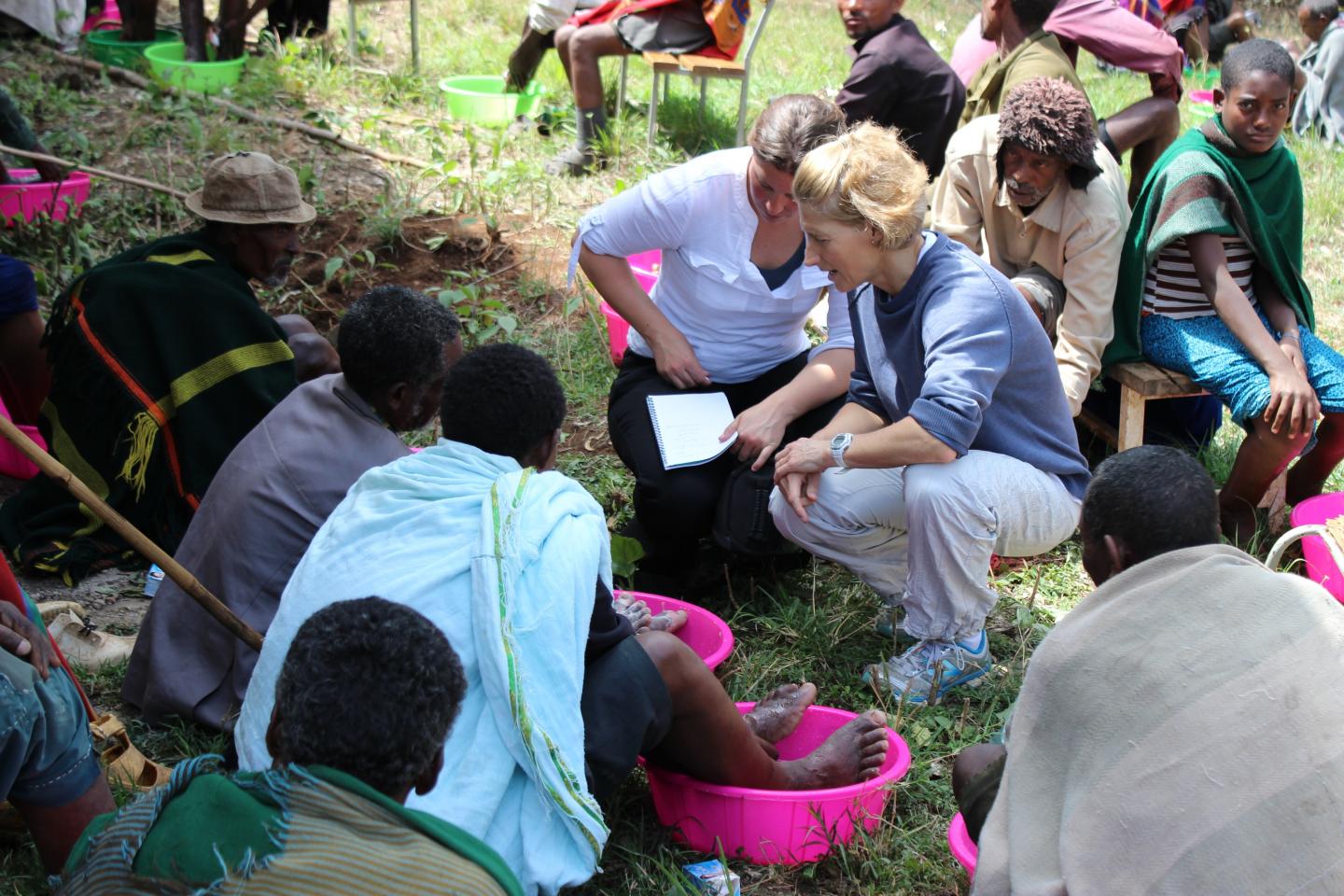
Credit: Brighton and Sussex Medical School
Researchers at Brighton and Sussex Medical School (BSMS) are asking governments in the developing world to adopt a low-cost, community-based approach to prevent acute attacks that occur in patients with a devastating neglected tropical disease.
A new study published in The Lancet Global Health shows that a simple package of self-care significantly reduced "acute attacks" among podoconiosis patients. The study was jointly funded by the Wellcome Trust, the UK Medical Research Council and UKAid.
Podoconiosis is a non-infectious disease which causes massive swelling of the legs among barefoot subsistence farmers who are in frequent contact with red volcanic clay soil. The disease causes pain, disability and disfigurement among some of the world's poorest communities, along with great stigma. Acute attacks ('michader') bring malaise, fever, chills, increased swelling of the limbs and skin peeling, when patients cannot move their legs and are confined to bed.
Researchers conducted a pragmatic randomised controlled trial in Northern Ethiopia to test the hypothesis that a simple, inexpensive lymphoedema management package would reduce the incidence of acute episodes in adult podoconiosis patients. Around 700 patients were individually randomised to a package comprising instruction in foot hygiene, skin care, bandaging, exercises, use of socks and shoes, with support by lay Community Podoconiosis Agents at monthly meetings; or had no intervention.
Both groups were followed up after a year, and the group who received the intervention showed a marked reduction in acute episodes, with an incidence rate ratio of 0.81 (a reduction in episode rate of almost 20% in those treated).
Gail Davey, Professor of Global Health Epidemiology at BSMS, who led the study, said: "In most countries that suffer from podoconiosis, there are not yet policies in place to manage this debilitating disease, largely due to limited awareness of the condition and lack of evidence for treatment.
"Our rigorous study provides vital evidence that a simple and cost-effective package of community-managed self-care could have a significant impact on the incidence of acute attacks in people with podoconiosis. Not only would implementing such an approach on a national scale reduce suffering and stigma among many of the poorest communities, it would have a significant impact on these communities' social and economic wellbeing. We would urge governments of countries with high prevalence of podoconiosis to develop policies for its management that include such a community-based approach."
###
Media Contact
Julie Wilton
[email protected]
01-273-641-441
@sussexunipress
http://www.sussex.ac.uk





